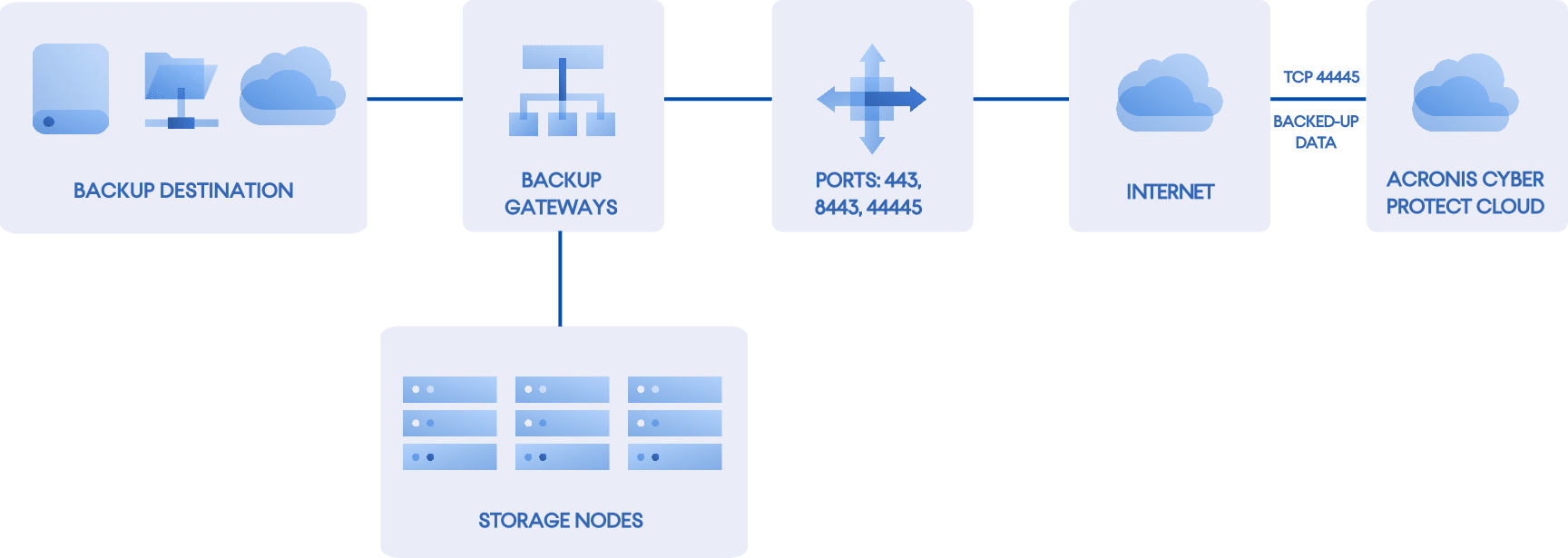About backup storage
Backup storage uses Backup Gateway as a storage access point. It is intended for service providers who use Acronis Cyber Protect and/or Acronis Cyber Protect Cloud and want to store their clients’ backed-up data in the local cluster, in the cloud (like Google Cloud, Microsoft Azure, and AWS S3), or on NAS (via the NFS protocol).
Backup storage enables a service provider to easily configure storage for the proprietary deduplication-friendly data format used by Acronis. In addition, the backup storage data can be geo-replicated.
Backup storage supports the following backup destinations:
- Acronis Cyber Infrastructure storage clusters with erasure coding providing for data redundancy
- NFS shares
- Public clouds, including a number of S3 solutions, as well as Microsoft Azure, OpenStack Swift, and Google Cloud Platform
While your choice should depend on the scenario and requirements, it is recommended to keep Acronis backup data in the Acronis Cyber Infrastructure local storage cluster. In this case, you can have the best performance due to WAN optimizations and data locality. Keeping backups in an NFS share or a public cloud implies the unavoidable data transfer and other overhead, which reduces overall performance. Besides, with external backup destinations, redundancy has to be provided by the external storage. Backup storage does not provide data redundancy or perform data deduplication itself.
Backup storage architecture
Backup Gateway, the backup storage access point, runs as a service on the Acronis Cyber Infrastructure nodes. It is recommended to deploy it on two or more nodes for high availability.
